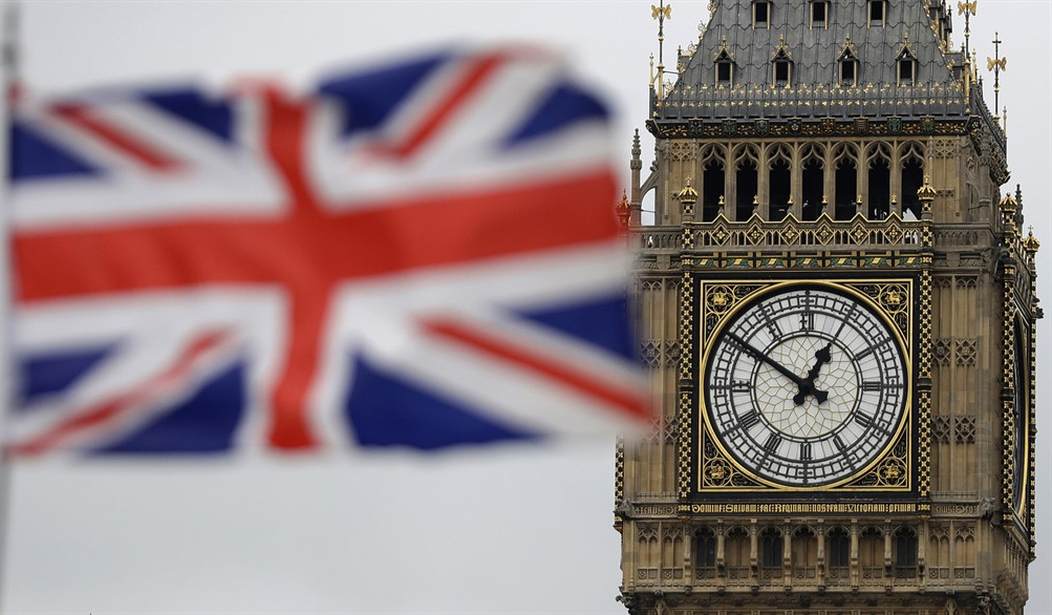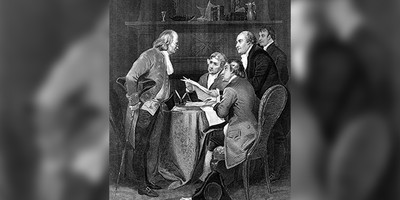In the age of COVID-19, Americans, especially residents of Los Angeles and Washington, D.C. could not go about their lives without first presenting documentation of their vaccination status. Mundane activities, such as a night out at a bar, were subjected to a show-your-papers regime. Meanwhile, social media platforms — often at the behest of the Biden administration — stifled the opinions of citizens who objected to the officially sanctioned precepts of science and pandemic policy. Yes, there was pandemic afoot, but many Americans intuited — quite rightly — that something monumentally un-American had occurred.
The mortal sin of Covid-era America was timidity. Absent years-long lockdowns and top-down speech controls, the most morbid nightmares of liberal elites, no matter how far-fetched, would supposedly become manifest. This fear liberated the statist impulses of the fearful and, through the legal regimes that issued from it, paralyzed a nation.
The United Kingdom (UK) lacked the justification of a novel pandemic when it enshrined that same timidity in law in the Online Safety Act (OSA). The law, which recently came into force, rests on the notion that the internet is simply too dangerous a place to be left free of the control of purportedly enlightened bureaucrats. The dual American Covid regime — pervasive show-your-papers mandates and online speech suppression — now rules the online lives of UK citizens.
Under the OSA, British users have discovered that engagement with basic digital services has become preconditioned on age verification, which often requires proffering government-issued documentation or scanning one’s face. This data-intensive process compromises users’ privacy. Even such tech firms as Spotify have instituted mandatory age verification with respect to certain content. “If you fail the checks, or if the age verification system can’t accurately determine your age … your Spotify account will be deleted,” 404 Media reports. Other content that nobody should wish suppressed has, in fact, quickly been suppressed.
Recommended
In other instances, “content relating to Gaza on X and cigars on Reddit was more restricted in the UK than in the U.S,” a review by Politico discovered. “Some required verification checks necessitating a photo ID or a selfie to verify age.” Further political information is subject to digital papers checkpoints: “After a demonstration outside the Britannia Hotel in Leeds on Friday, X users said it blocked arrest footage,” per the Daily Mail. “They were shown the message: ‘Due to local laws, we are temporarily restricting access to this content until X estimates your age.’”
The OSA goes far further in its censorship. It also requires the outright suppression of “illegal” content — a category that a brief survey of the UK government’s website reveals to encompass kinds of speech which the American First Amendment protects unequivocally. These include: “racially or religiously aggravated public order offences” and “illegal immigration and people smuggling.” On X, Daniel Hannan, a British peer, asked, “What would your reaction have been if, during the passage of the Online Safety Bill, a minister had declared from the Despatch Box that its first use would be to stop people on social media seeing images of anti-asylum protests?”
Other categories — e.g., “inciting violence” and “controlling or coercive behaviour” — should worry defenders of free speech, because they provide bureaucrats with only the vaguest standards, primed for arbitrary and censorial enforcement. Indeed, the OSA allows Ofcom, the UK’s digital regulatory agency, startling discretion in its determinations of what speech will remain available online. Similarly, the law takes explicit aim at content that rankles the powerful. “Mis- and disinformation will be captured by the Online Safety Act where it is illegal or harmful to children,” the UK’s website reads. Once found, platforms must remove such content. If one lesson emerged from the COVID-19 pandemic, it was this: a free citizenry should decry the state’s attempts to predicate speech controls on claims of mis- and disinformation.
Perhaps nobody ought to have expected better. The UK has proved itself at best an inconstant friend of free speech, particularly online. Individuals recently targeted by the authorities include an autistic woman who — quel horreur — labeled her lesbian grandmother a lesbian and a couple who criticized the leadership of their daughter’s school.
Fortunately, the OSA’s enforcement has met with monumental disgust, both in the UK and stateside. Users have flooded to download virtual private networks, which facilitate the skirting of the OSA’s provisions. American politicians, in the Trump administration and on Capitol Hill, have made clear their intent to resist the OSA’s censorship.
In a revolutionary digital age, nations are starkly confronted with an age-old question: free speech and a free citizenry, or censorship and state control? The continued existence of the free internet hinges on their answer.
David B. McGarry is the research director at the Taxpayers Protection Alliance.
Editor’s Note: Do you enjoy Townhall’s conservative reporting that takes on the radical left and woke media? Support our work so that we can continue to bring you the truth.
Join Townhall VIP and use the promo code FIGHT to get 60% off your VIP membership!

























Join the conversation as a VIP Member